Cacti are among the most peculiar and beautiful plants in the world. It has striking forms and gorgeous green colour variations. Cactus plants come in varieties and can be used in home décor themes, including boho, southwestern, and minimalist.
Many people mistake cactus plants for other succulent plants. Succulents called cacti have woody or herbaceous stalks that are rich in chlorophyll. Photosynthesis is produced, and water is stored in the plant’s fleshy stems.
Unlike other succulents, the branches of cactus plants feature areoles that resemble cushions. Cacti come in various shapes and sizes, and some even feature bright blossoms. While many cacti have sharp spines, some don’t even have any.

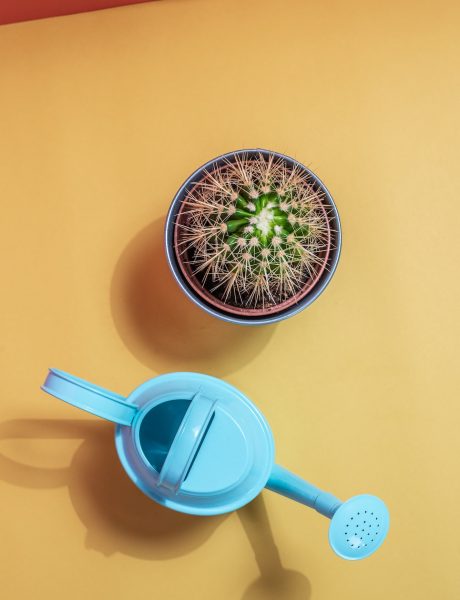
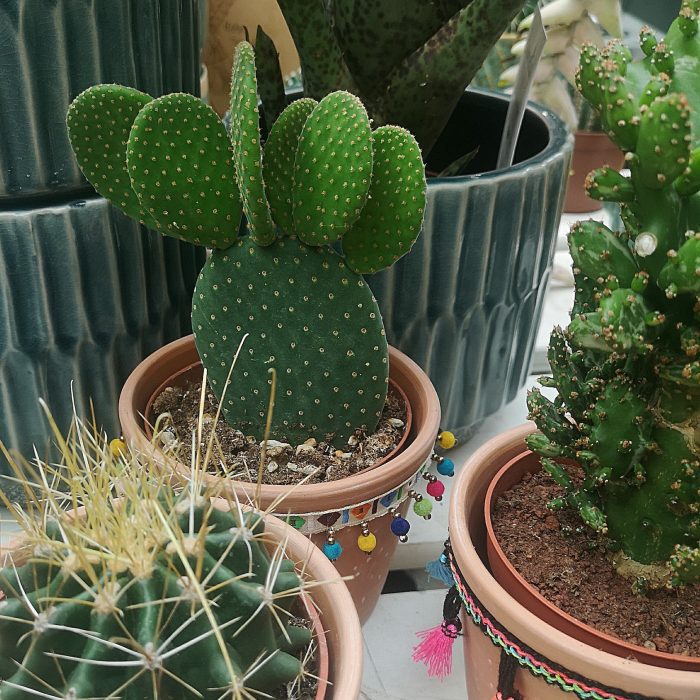
Additionally, some cacti feature eye-catching traits like golden blooms, white hairs, or unusual morphologies. A low-maintenance plant that grows slowly and needs less repotting, trimming, feeding, or watering is the cactus. The cost of cactus plants is also relatively affordable while adding an elegant touch to the interior decor.
If you are planning to grow cacti in your home space, you must not overlook the vitality of suitable planters. We understand it can be overwhelming and confusing to get the planter that supports your cactus’s growth; therefore, we are here to help you.
With our vast range of planters at Plant Judo, you may now select the correct planter that goes well with all species of cacti.
Get in touch with us to see what we have to offer for your plants.
Cactus and succulents are two of the unique plants you can nurture indoors. They are renowned for their fortitude and compassion. You should have at least one cactus plant in your room in addition to its aesthetic appeal.
The benefits of cactus plants include air cleansing. The plant facilitates air purification and enhances breathing. All plants, including cacti, take up carbon dioxide and use it to create breathing oxygen.
The cactus also helps to improve indoor air quality by removing contaminants from the interior air. You can reduce their number by maintaining a ratio of one giant cactus for every two people.
The cactus reduces stress by reducing carbon dioxide levels, significantly contributing to restlessness and anxiety. It is an excellent addition to homes and offices because it provides soothing sensations. Cacti and other plants psychologically impact patients, which aids in their quick healing.
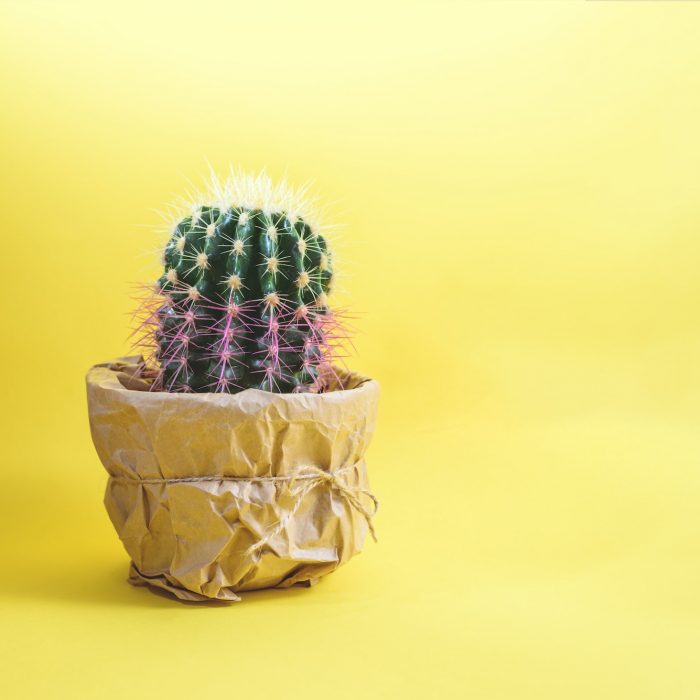
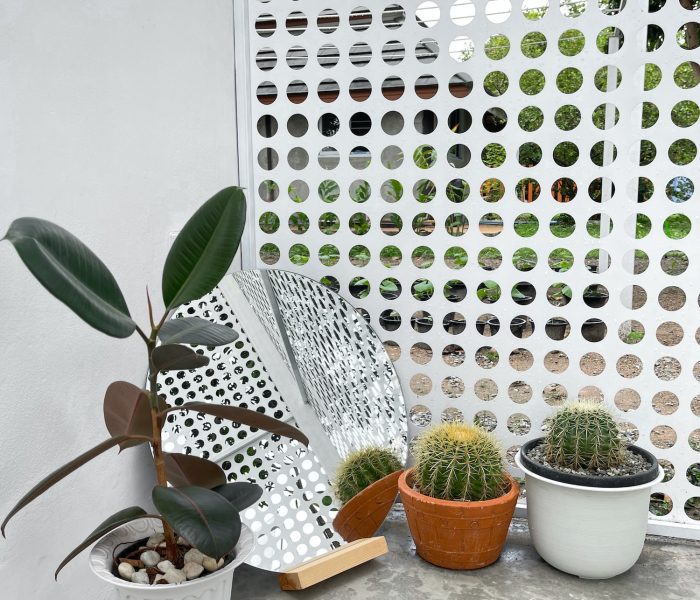
Cacti can reduce the amount of background noise in the home, which can aid while trying to unwind. Their broad surface area bounces sound away from you as a result. Cactus plants close to windows, doorways, workstations, or comfort zones will muffle sounds and have a calming impact.
Cacti are robust, low-maintenance plants that can survive anywhere. You can ignore them, and they will still survive. It is the perfect example of aesthetic curiosity in many aspects due to its shallow root system.
Cactus plants increase the humidity in the air within your home. You can get relief from dry skin and itching issues by keeping cacti indoors.
People who have gone through trauma may find it helpful to have cacti care for them at home. The mind might wander to the cactus, responding to its needs while processing the painful experience rather than remaining focused on the unpleasant event.
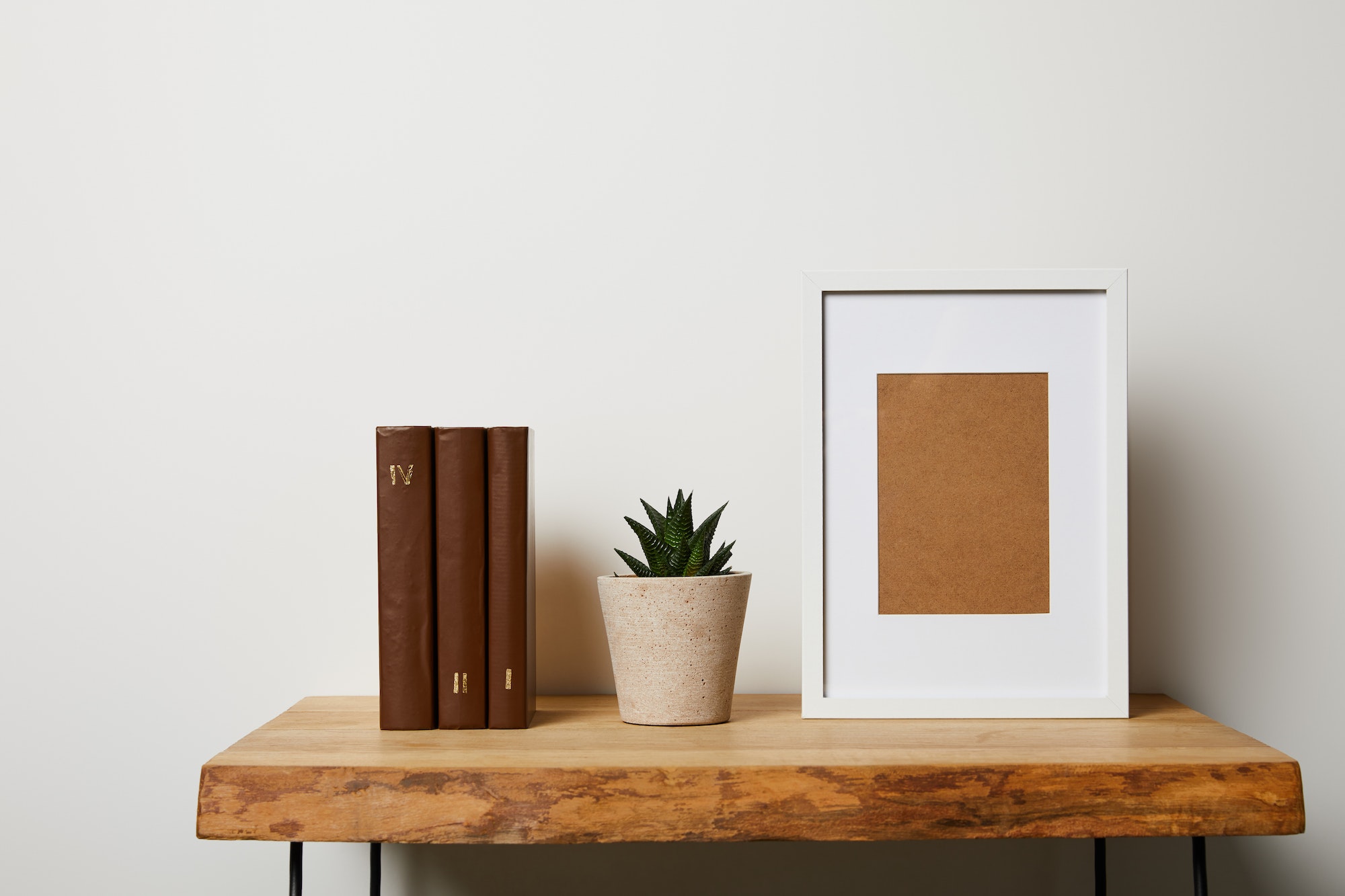
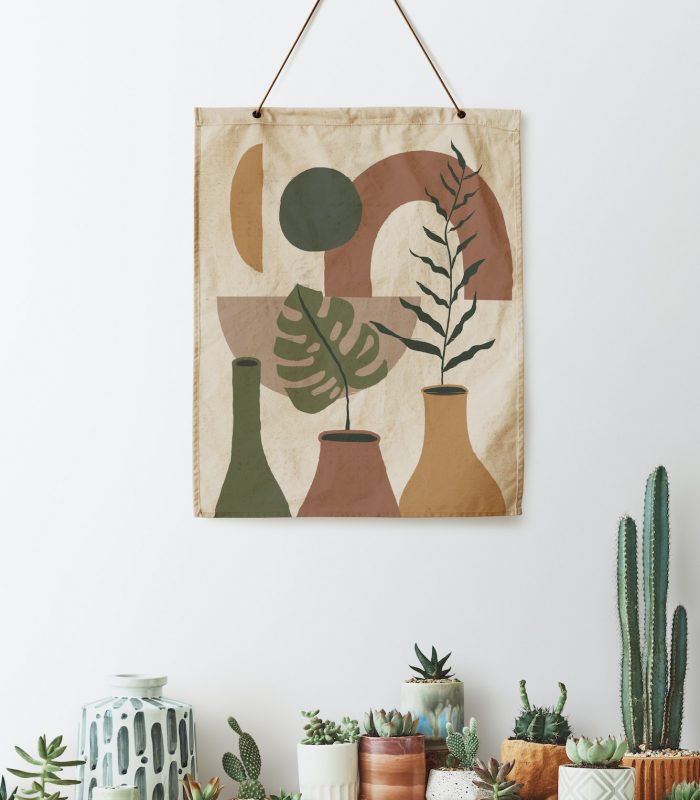
Your cactus, specifically its roots, should be roughly the same size as the pot. Removing your cactus and examining its roots before choosing a pot or container is best. Remove a cactus from its pot, examine the roots, and measure them after removing the soil.
If the roots of your cactus are short but growing outward, use a wide container; if the roots are long and growing inward, use a deeper container. A pot should be a little deeper than the roots since you also need to give room for drainage.
To make your cactus comfortable in the pot, we have about 1-2 inches wide containers (to the plant’s overall width). Depending on the kind of cactus you choose, the depth of the container you should use for it should be between 4 and 7 inches. Shorter roots are seen in some cacti, while longer roots are found in other cylindrical cacti (such as ball cacti).
The depth of the pot is crucial since it could obstruct the cactus’ growth. Depending on the kind of succulent you are planting, determine the depth. You should proportionately reflect your cactus’s natural growth process in the pot’s depth. You can choose from our deep pots if your cactus grows taller and tends to have deep roots that can flourish.
Remember that the depth factor is one of the main reasons you need to re-pot. When a plant is young, it often has a tiny root system and needs a small pot to prevent overwatering. You will need to re-pot it as it grows after a few years to accommodate the expanding roots and avoid the roots becoming tangled in the small container.
Checking the drainage holes at the bottom of the pot is the only surefire technique to determine whether you need to re-potter. It is time to repot into a larger pot if there are protruding roots.

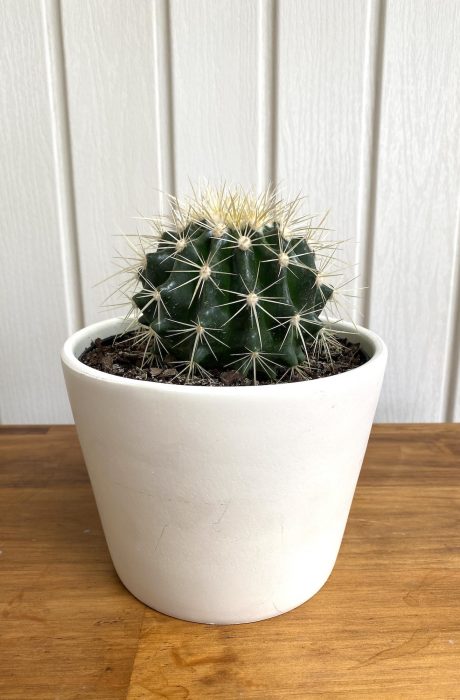
It is typically the first thing to consider for cactus enthusiasts when selecting the appropriate material. There isn’t any excellent or terrible material, and everything hinges on your preferences. Here are the available items:
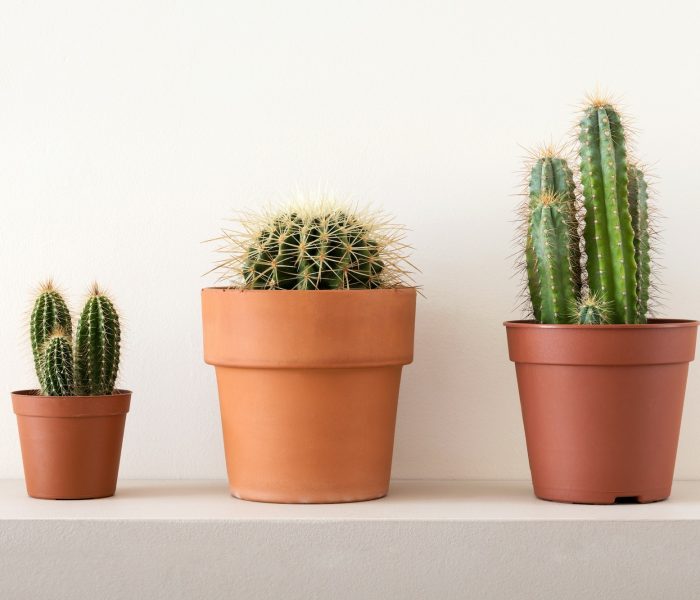
The popularity of our clay pots is due to how quickly they drain. The cactus thrives in this climate because of its porous nature. Because they absorb water, it is simple to determine the amount of moisture in the soil. These clay pots absorb water and darken.
Outdoor cactus thrives in wood. It can keep water for an extended period and is cold temperature resistant. For outdoor cacti, this makes it perfect. Wood is an attractive substance; you can also change its interior design. For your cactus, it is simple to get exquisitely made wooden containers.
Some of the most practical planters you may utilise are our plastic pots. It is because they are inexpensive, easily accessible, and reusable. Our plastic planters come in all different sizes, shapes, and colours.
Because they are more valuable than clay pots, plastic pots have gained appeal as a superior substitute. Indoor plastic pots maintain their attractive appearance for a very long period, unlike clay pots that eventually lose their beauty owing to salt buildup after evaporation.
If you want to add colour and beauty to your home’s decor but are on a tight budget, you should consider our plastic planters. Thanks to technology, plastic planters can now be moulded into various forms and painted to resemble rocks.
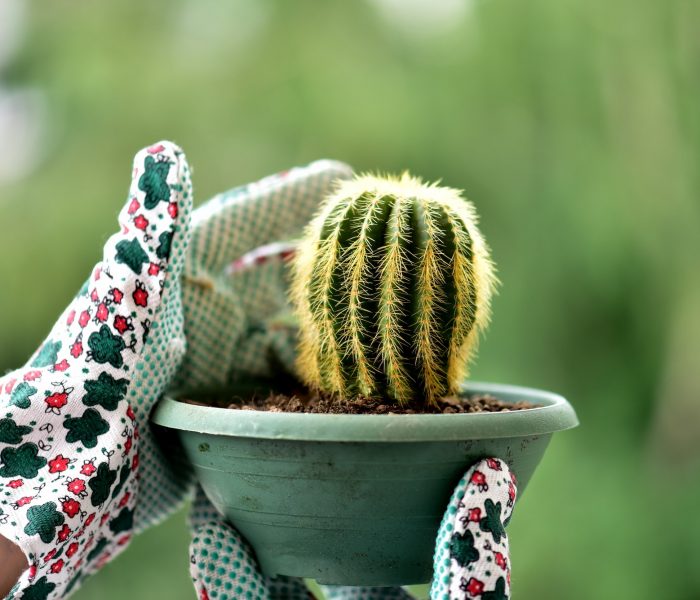
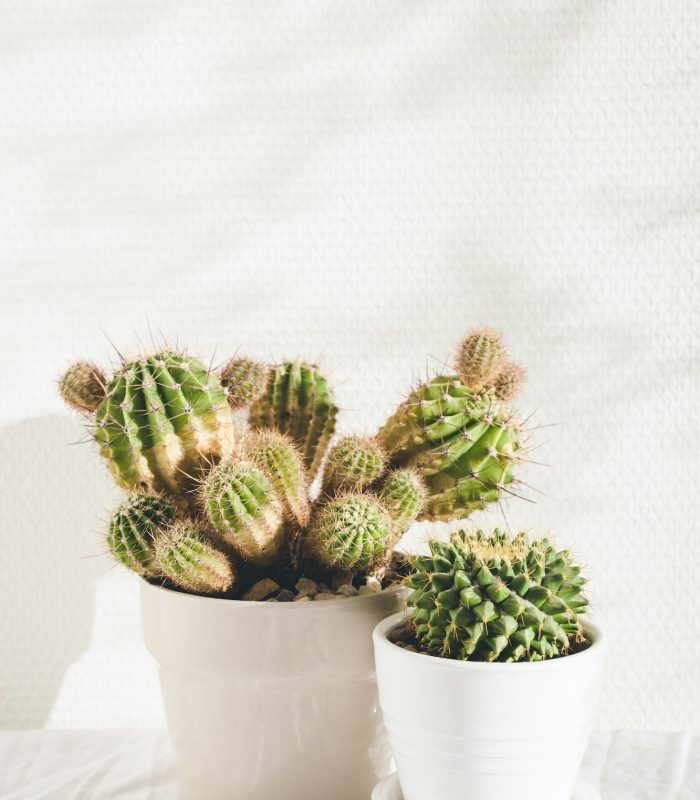
Our ceramic pot is the best option for you if you’re seeking a planter that will enhance the beauty of your home’s design. They are perfect for inside planters because they come in various sizes, shapes, and colours.
These lovely ceramic containers can be pretty hefty, making them unsuitable for more enormous cacti that demand more giant planters.
Two categories of ceramic pots exist:
Because they are porous and permeable to air and water, unglazed ceramic pots are best for cacti. It enables the plant to thrive.
Ceramic pots with glaze are not porous. Because of their poor drainage, they are suitable for cacti that don’t mind a lot of moisture.
Cactus plants are more than simply ornaments; they’re an excellent hobby and a source of love. They are also used as a decorative feature, and some gorgeous white pots and cutesy cacti will make your home come to life. Whether in your kitchen or bedroom, it is a beautiful accent for any space.
Cacti have a lengthy lifespan if a few simple maintenance guidelines are followed. You only need to provide them with full sunlight outside or solid artificial light indoors, drained soil, and light to moderate watering, and you’re ready to go.
Are you prepared to expand your collection of less prickly indoor plants?
Play around with these diverse cactus planters varieties at Plant Judo.
Contact us to learn more about suitable planters for your cacti.

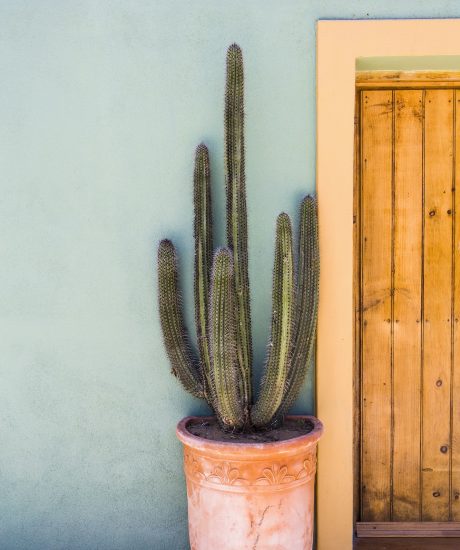
It is advisable to arrange cacti and succulents in a bright area because they do best with good light sources. A place that faces south will get plenty of light. But be careful not to place them in direct sunlight since the intense light may cause the plants to turn yellow.
It is suggested that the prickly pear cactus, sometimes referred to as nopal, opuntia, and other names can treat diabetes, high cholesterol, obesity, and hangovers. It is also praised for having anti-inflammatory and antiviral qualities.
Its robust stems offer plenty of space for storing water and a lid that keeps the water within. Some cactus species may survive without water for two years. You must water the indoor types more frequently, depending on the species.

Copyright © 2024 Plant Judo. All Rights Reserved
Kemp House, 152 – 160 City Road,
London, EC1V 2NX
United Kingdom